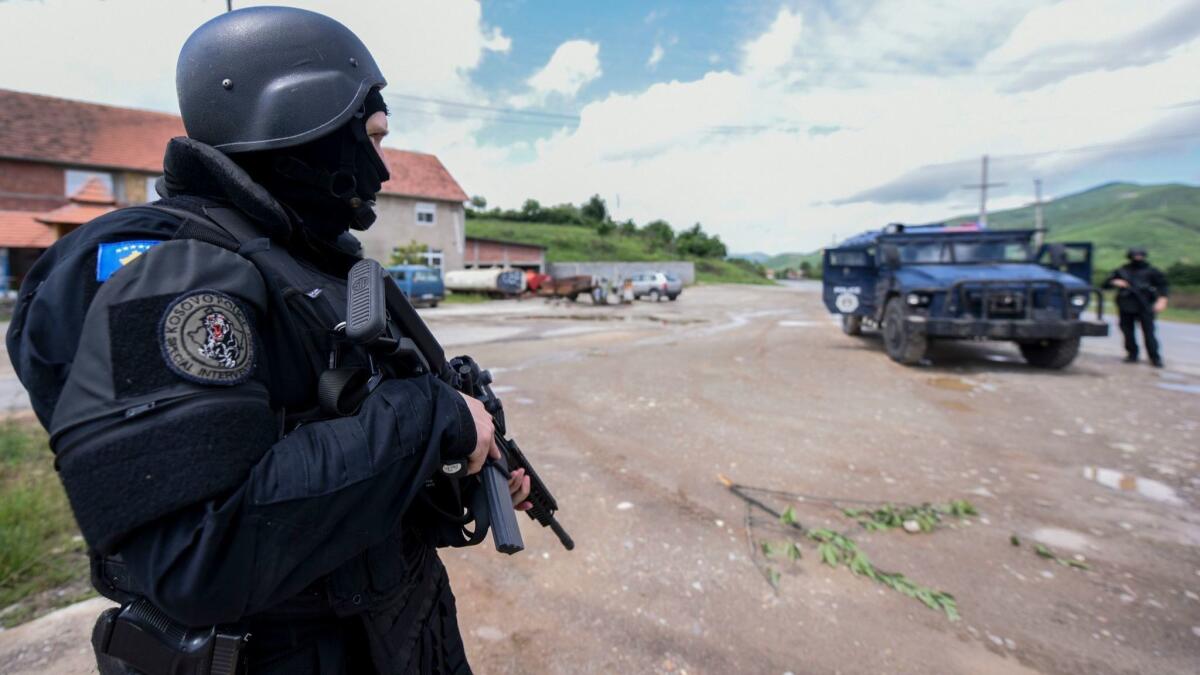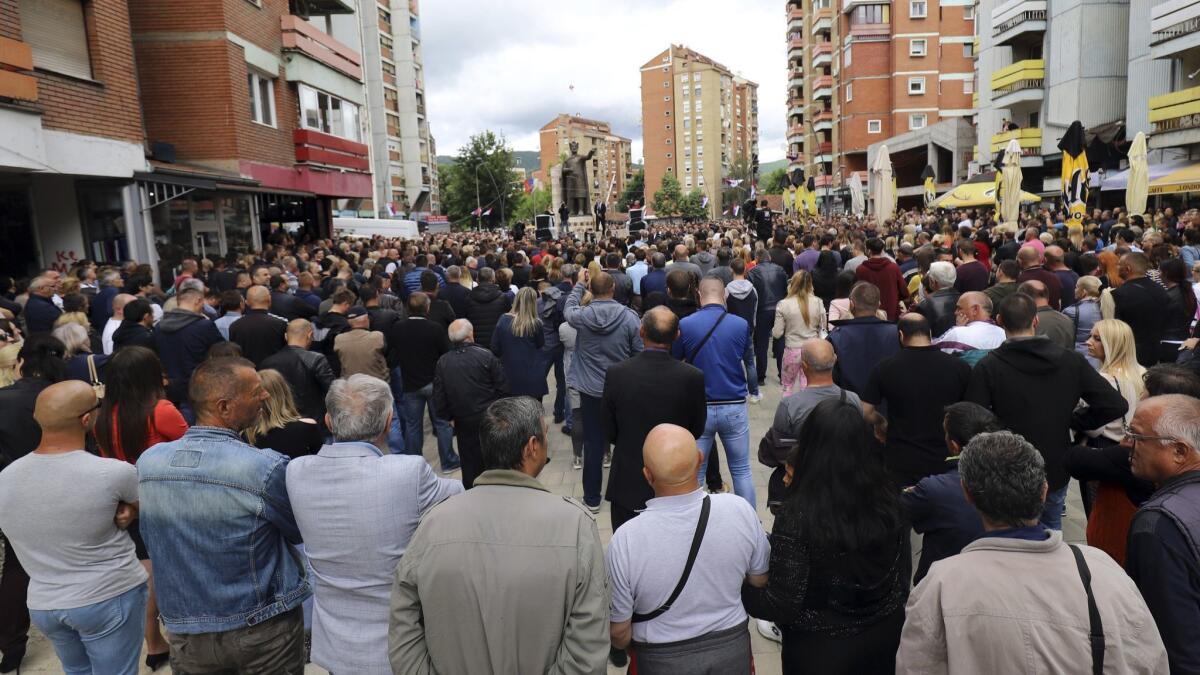Serbia-Kosovo tensions persist. Why?

- Share via
Reporting from BELGRADE, Serbia — Tensions between Serbia and Kosovo flared this week after Kosovo’s police raided Serb-dominated areas in the region’s north and arrested scores of people. There have been clashes between Kosovo’s police and local Serbs, with several people injured, and two U.N. personnel were detained, including a Russian. Serbia raised its combat readiness and warned that it won’t stand by if Serbs in Kosovo are attacked. The situation has fueled fears of a renewal of the 1998-99 conflict that claimed more than 10,000 lives and left over 1 million homeless.
An explanation of why Kosovo remains a flash point:
Why are Serbia and Kosovo at odds?
Kosovo is a mainly ethnic Albanian territory that was formerly a province in Serbia. It declared independence in 2008. Serbia has refused to recognize Kosovo’s statehood and still considers it part of Serbia, even though it has no formal control there. Kosovo’s independence has been recognized by about 100 countries, including the United States. Russia, China and five European Union nations have sided with Serbia. The deadlock has kept tensions simmering and prevented full stabilization of the Balkan region after the bloody wars in the 1990s.
How deep is the conflict?
The dispute over Kosovo is centuries-old. Serbia cherishes the region as the heart of its statehood and religion. Numerous medieval Serb Orthodox Christian monasteries are in Kosovo. Serb nationalists view a 1389 battle against Ottoman Turks there as a symbol of its national struggle. Kosovo’s majority ethnic Albanians, who are majority Muslims, view Kosovo as their country and accuse Serbia of occupation and repression. Ethnic Albanian militants launched a rebellion in 1998 to rid the country of Serbian rule. Belgrade’s brutal response prompted a NATO intervention in 1999, which forced Serbia to pull out and cede control to international peacekeepers.
What is the situation locally?
There are constant tensions between the Kosovo government and the Serbs who live mainly in the north of the country and keep close ties with Belgrade. Attempts by the central government to impose more control in the Serb-dominated north are usually met with resistance. Mitrovica, the main town in the north, has been effectively divided into an ethnic Albanian part and a Serb-held part, and the two sides do not mix. There are also smaller Serb-populated enclaves in the south of Kosovo, while tens of thousands of Kosovo Serbs live in central Serbia, where they fled together with the withdrawing Serb troops in 1999.

Have there been attempts to resolve the dispute?
There have been constant international efforts to find common ground between the two former foes, but no comprehensive agreement so far. European Union officials have mediated negotiations designed to normalize relations between Serbia and Kosovo, and some areas have seen results, like introducing freedom of movement and multiethnic police. Serbia pulled out of the talks after Kosovo imposed a 100% import tax. An idea has been floated for border changes as the way forward, but this was rejected by many EU countries out of fears that it could cause a chain reaction in other ethnically mixed areas in the Balkans and trigger more trouble in the region.
Who are the main players?
Both Kosovo and Serbia are led by nationalist leaders who were active during the era of the 1998-99 war. In Kosovo, former rebels hold both the presidency and the prime minister’s post. Prime Minister Ramush Haradinaj and President Hashim Thaci are political opponents: Thaci initially supported an idea to change borders for peace, while Haradinaj strongly opposes it.
In Serbia, powerful populist President Aleksandar Vucic, a former ultranationalist, insists that any solution must be a compromise in order to last. He has openly acknowledged that Serbia has lost control over Kosovo and has to come to terms with that, but says the country won’t settle unless it gains something.
What happens next?
International officials are hoping to restart talks between Serbia and Kosovo. Both nations must normalize ties if they want to advance toward EU membership. No breakthrough would mean prolonged instability, economic decline and constant potential for clashes. Any Serbian military intervention in Kosovo would mean a clash with NATO peacekeepers there, and Serbia is unlikely to move in. But Belgrade controls Kosovo’s north, and Kosovo cannot become a member of the U.N. and a functional state without resolving the dispute with Serbia.
More to Read
Sign up for Essential California
The most important California stories and recommendations in your inbox every morning.
You may occasionally receive promotional content from the Los Angeles Times.










